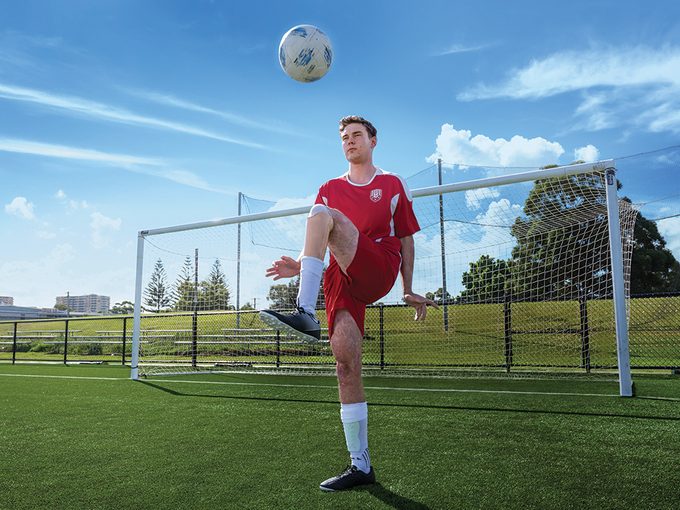 Think your child has been vaccinated against meningitis B? Not necessarily. Even if they received a meningitis vaccine, they may still be missing coverage for meningitis B. Heres why you shouldnt assume your child is protected and why you should talk to your doctor about vaccination.World Meningitis Day, April 24, is time to raise awareness of meningitis and recognize the importance of prevention through vaccination. Lets delve into this disease and how to protect your family.Meningitis is an inflammation of the meninges (the lining of the brain and spinal cord). It can be caused by bacteria, viruses and fungi. Bacterial meningitis is the most serious type and is often associated with a potentially life-threatening infection of the bloodstream called septicemia.One of the most common bacteria that causes meningitis is Neisseria meningitidis (meningococcus). There are several types of meningococcal bacteria, including groups A, B, C, W and Y. Meningitis B is caused by the group B strains.Before 2005, most cases of meningococcal disease in Canada were caused by group C strains. With the help of vaccines, group C outbreaks have become rare. In recent years, most Canadian cases have been caused by group B strains – responsible for over 50% of the 548 cases that occurred from 2013 to 2017. It can affect all ages, but babies, children and teens are especially at risk.
Think your child has been vaccinated against meningitis B? Not necessarily. Even if they received a meningitis vaccine, they may still be missing coverage for meningitis B. Heres why you shouldnt assume your child is protected and why you should talk to your doctor about vaccination.World Meningitis Day, April 24, is time to raise awareness of meningitis and recognize the importance of prevention through vaccination. Lets delve into this disease and how to protect your family.Meningitis is an inflammation of the meninges (the lining of the brain and spinal cord). It can be caused by bacteria, viruses and fungi. Bacterial meningitis is the most serious type and is often associated with a potentially life-threatening infection of the bloodstream called septicemia.One of the most common bacteria that causes meningitis is Neisseria meningitidis (meningococcus). There are several types of meningococcal bacteria, including groups A, B, C, W and Y. Meningitis B is caused by the group B strains.Before 2005, most cases of meningococcal disease in Canada were caused by group C strains. With the help of vaccines, group C outbreaks have become rare. In recent years, most Canadian cases have been caused by group B strains – responsible for over 50% of the 548 cases that occurred from 2013 to 2017. It can affect all ages, but babies, children and teens are especially at risk.
The bacteria that cause meningitis B can be spread easily.
Meningococcal bacteria live in the nose and throat. They can be spread easily through everyday behaviours like coughing or sneezing, sharing eating utensils, kissing and close physical contact. Meningitis occurs when these bacteria enter the bloodstream and travel to the brain and spinal cord. It can also happen when the bacteria directly invade the meninges, such as from an ear or sinus infection or skull injury.

Whats most alarming is that bacterial meningitis can strike suddenly with mild symptoms that escalate rapidly.
Early symptoms can seem like those of a cold or flu headache, fever, irritability, drowsiness, cold chills, feeling tired, vomiting or diarrhea, cold hands and feet, rapid breathing and a dark purple rash. If you think your child has symptoms of meningitis, seek medical attention right away.
Although rare, meningitis can have grave and potentially life-threatening consequences.
Without treatment, up to 1 in 10 cases can lead to death, often within 2448 hours of the onset of symptoms. Those who survive may experience devastating lifelong complications: vision and hearing loss, epilepsy, brain damage, memory difficulty, loss of speech, learning disabilities, behaviour problems, paralysis and, with septicemia, limb loss.
The best way to prevent meningitis B is to get vaccinated.
While there isnt one vaccine that protects against all types of meningococcal bacteria, there are vaccines available that protect against the five types of bacteria that cause the majority of cases of the disease in Canada. As part of routine vaccinations, most children receive meningococcal vaccines that cover group A, C, W and Y strains however they dont protect against group B strains. So even if your child received a meningitis vaccine, they may be missing protection against meningitis B. Meningitis B vaccines werent available until 2014 and havent been added to the routine vaccination schedule in Canada.
Have a discussion with your doctor about vaccination.
Talk to your doctor about your options to help protect your child against all vaccine-preventable types of meningococcal disease, including meningitis B. Prevention is your best shot to help protect the ones you love most.For more information, including symptoms to watch out for, visit missingb.ca
The post A_CWY — Is Your Child Missing Coverage for Meningitis B? appeared first on Best Health Magazine Canada.


0 Commentaires